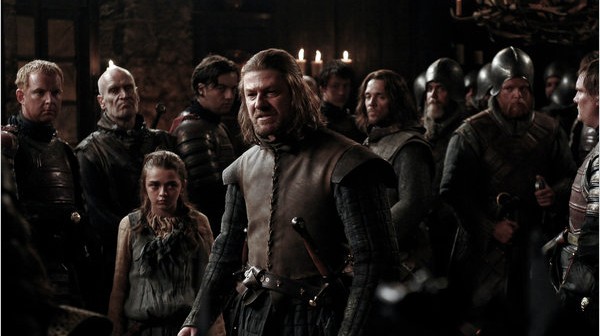There is no denying that award-winning author George R. R. Martin can weave a fine tale, what with the long string of novels, short stories, and television adaptations credited to his name. With a Game of Thrones book, however, he broke through the barriers of the fantasy genre, bringing to light a unique story-telling structure that is sure to set a new benchmark for future generations of fantasy writers.
Perhaps the most interesting facet of the Game of Thrones book is how Martin manages to create a world that is fantastical and realistic at the same time. While the setting has hints of magic, dragons, and otherworldly creatures, these are used more to enrich the world and the characters rather than to serve as the driving forces of the story. There is no “deus ex machina” element that is typical of fantasy worlds; no presence of an all-powerful god, wizard, or creature that will save the main hero from impending doom. Instead, all of the main characters have to get out of scrapes through their own devices and when they are unable to do so, they can and will be subjected to severe punishment, sometimes even death. One of the reasons the series has become so infamous is Martin’s apparent willingness to kill any of the characters for the sake of the story.
Another intriguing feature of the book is its unique, character-driven nature. Instead of highlighting the fantastical elements of the world, Martin focuses on the human nature of its main players. A Game of Thrones is just that – a power struggle between four main families, the Baratheons, Starks, Lannisters, and Targaryens, who are vying for control of the Iron Throne in much the same way as War of the Roses. The story is told from the viewpoint of eight different characters who represent each of these families. The shifting views offer the possibility of diverse perspectives for a particular event, leading readers to reevaluate their initial assumptions. A nobleman who orders a gruesome beheading at the beginning of the book may be seen as a heartless tyrant, but is later revealed to be the main hero of the book and likely the most honorable among the key players. The Lannister family can be perceived as the villains, but it is the viewpoint of the Lannister dwarf who provides the most earthly, interesting, and entertaining perspective to the underlying war.
The diverse cast of characters keeps readers engaged throughout the lengthy prose. They are not merely kings, princes, and knights, but also fathers, sons, widowers, outcasts, and bastards. There are the stunted, crippled, and the maimed, but they are no less as strong as the people around them. Women play a pivotal role as well. Far from being type-casted as delicate elven princesses or beautiful witches, they are the mothers, daughters, sisters, and friends; and they possess a determination and strength of character that can easily overpower the men.

